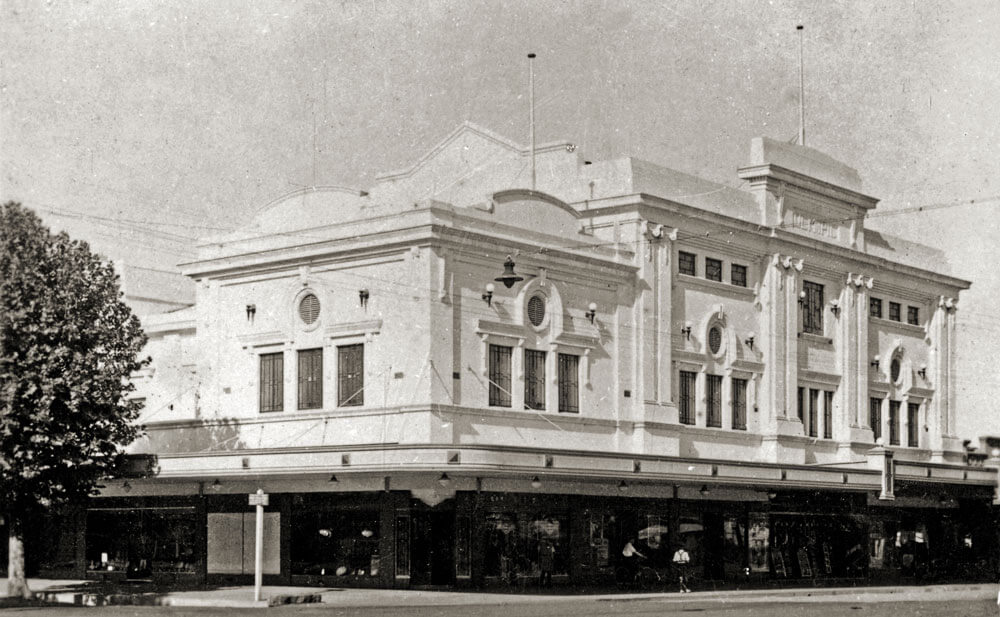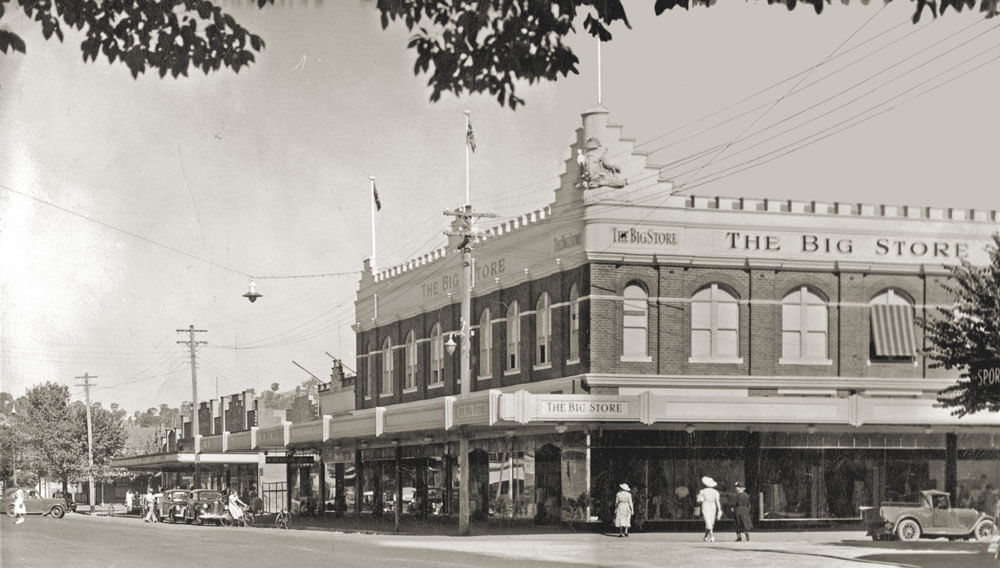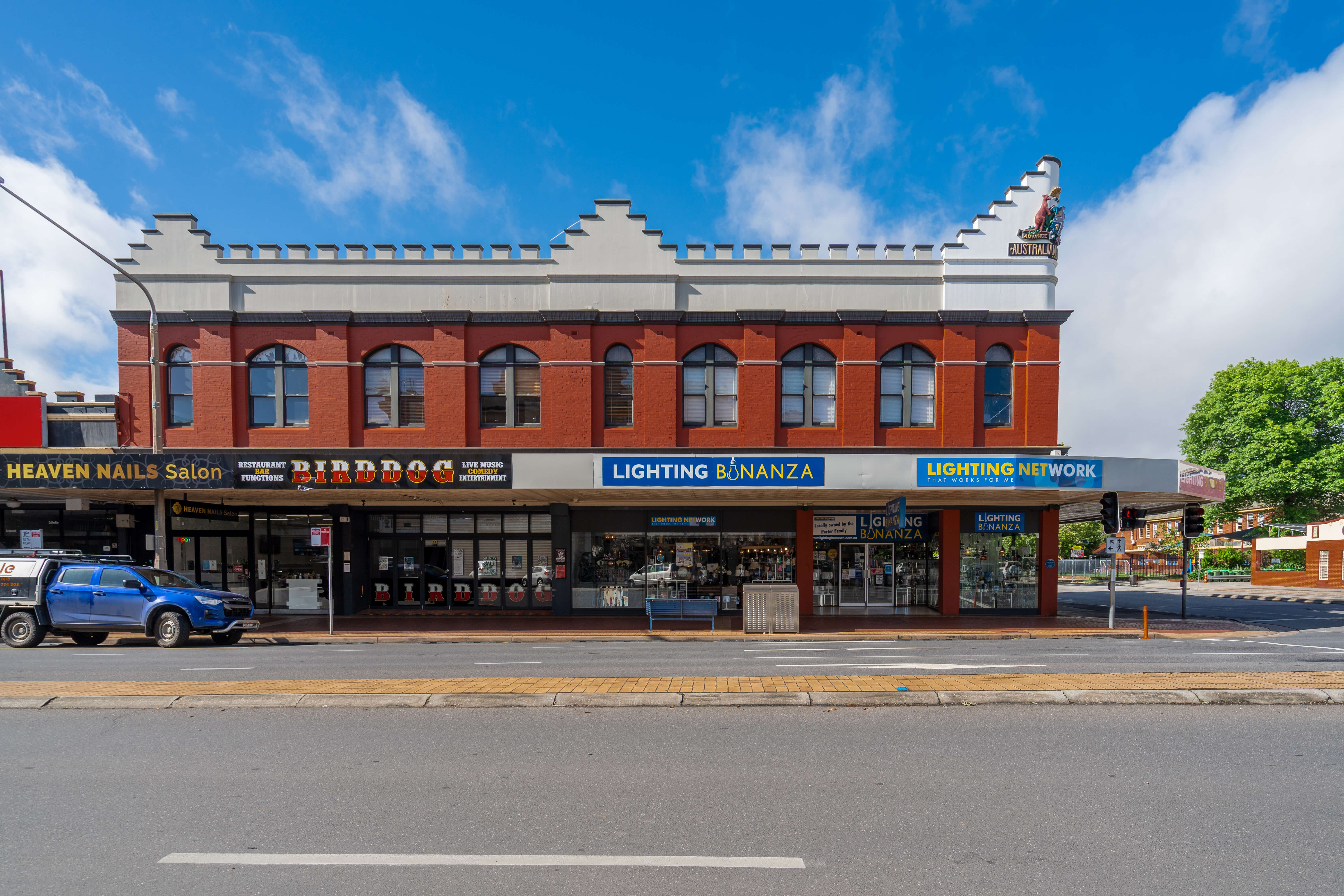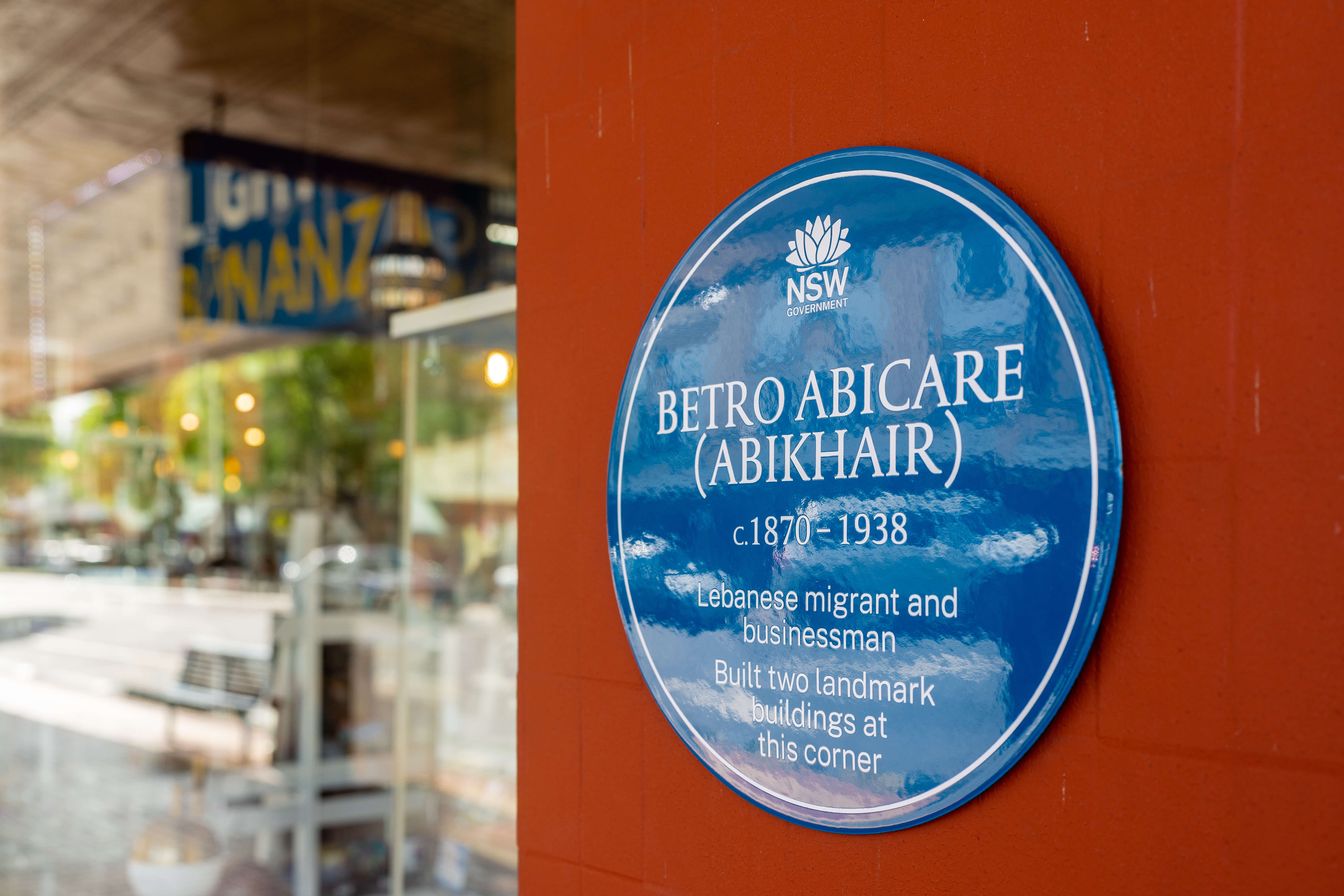Location
Albury is on the lands of the Wiradjuri people.
Accessibility
Wheelchair accessible
About Betro Abicare (Abikhair)
Betro Abicare (sometimes spelt Abikhair) was a Lebanese immigrant, builder and entrepreneur who made a major contribution to the development of Albury’s commercial centre.
He came to Australia in 1889, during a wave of migration from Lebanon that started in the 1870s. Betro began by hawking goods between farms but by 1898 had settled in Albury, where he established a successful draper’s business.
He erected a building known both as 'The Big Store' and 'The Australian Building' in 1912, and the magnificent Regent Theatre on the opposite corner in 1927. Both buildings remain as notable Albury landmarks to this day.
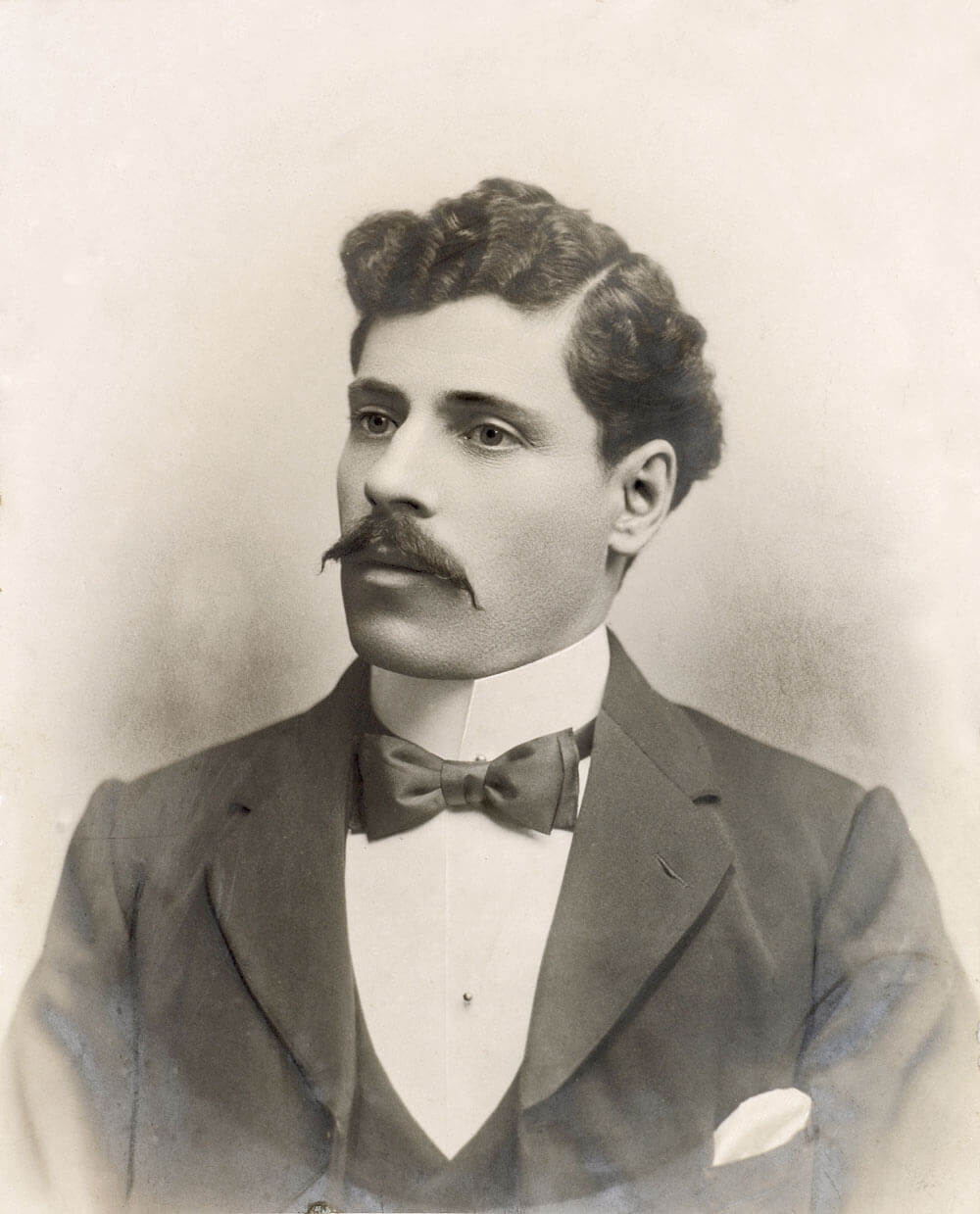
Portrait of Betro Abicare, circa 1902
A life on the road
Betro Abicare is believed to have been born around 1870 at Dhour El Choueir, a town in the mountains of Lebanon. He arrived in Melbourne as a teenager, accompanied by his brother Nicholas and cousin Saad.
Early migrants often faced a range of discriminatory attitudes and practices. Finding it hard to get paid employment, many adapted by creating their own opportunities. Armed with a suitcase of what used to be called 'fancy goods' – ribbons, needles, cotton, lace and more – they hit the road as hawkers, selling their wares from farm to farm.
Taking the initiative
This was the pattern Betro followed. He sold his wares around Victoria and southern and western New South Wales, at times going as far as Broken Hill and Tumbarumba.
Moving to Albury in 1898 after becoming a naturalised British subject, Betro initially set up with his cousin Saad Abikhair as drapers (textile fabric sellers) with a store in the Beehive Chambers on the corner of Dean and Townsend streets.
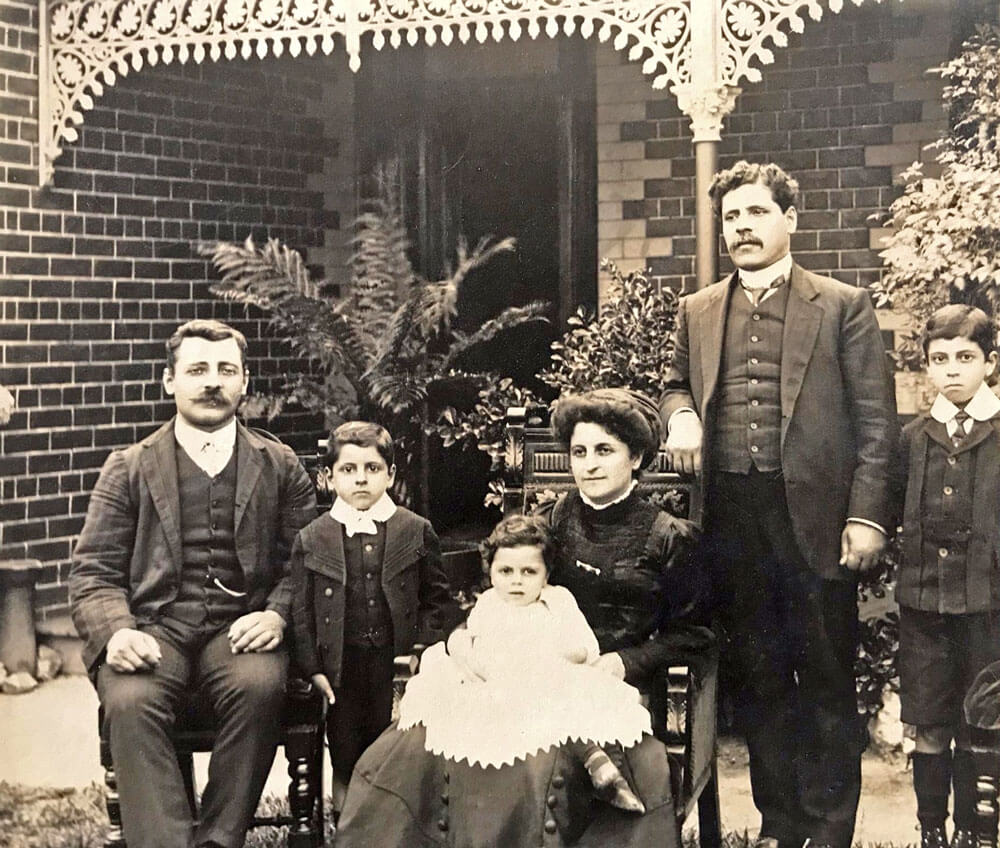
Betro Abicare and family. The man sitting at the left is believed to be his brother Nicholas, continuing left to right: Victor, baby Frederick, Julia (seated, holding Frederick), Betro (standing) and Claude, circa 1911
Diversification
As Betro's business prospered, he sought to invest his profits in property.
He first acquired land on one corner of the intersection of Dean and David streets and built his own drapery and clothing shop. Known as 'The Big Store', this 2-storey building took Albury’s retail trade to new heights when it opened in 1912. It stood out for the prominent Australian coat of arms on its parapet, as well as fine displays in its large shop windows.
Betro later acquired more land on a vacant lot opposite the store and built the Regent Theatre, which opened in 1927. Designed by local architect Louis Harrison, this building was notable for its magnificent interior, including its marble and Queensland maple foyer. It was estimated to cost between 30,000 and 40,000 pounds – a considerable sum at the time. The Regent was Albury’s first venue built primarily for screening films and quickly proved a great success.
Building a community
Betro was part of a progressive and respected Lebanese community in Albury, many of whom – like Betro – recognised the potential to establish retail businesses locally.
Betro Abicare died at his home in Albury on 2 August 1938.
Today, the Big Store is still a notable feature of Albury's streetscape. Together with the Regent Theatre, they stand as enduring testaments to the contribution Betro made to his adopted town’s commercial heart.
